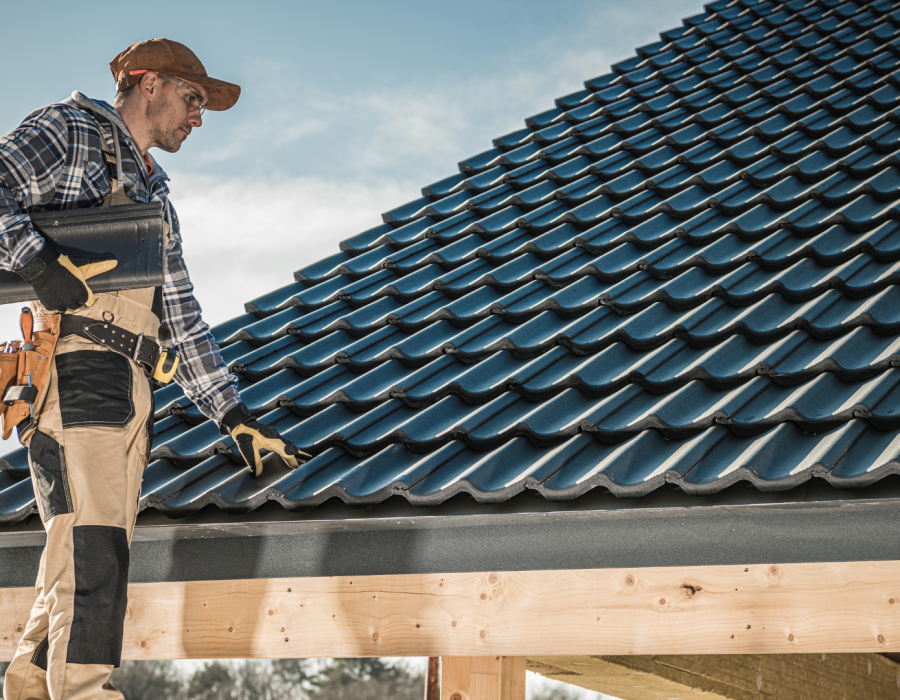Introduction
Roofing projects are a significant investment for any homeowner. Whether you're repairing a small section or undertaking a full roof replacement, proper planning is essential. One key aspect of roofing projects that often gets overlooked is the requirement for a roofing permit. Understanding when and why you need a permit can save you from legal issues, added costs, and project delays. In this guide, we’ll cover everything you should know about roofing permits to ensure your roofing project proceeds smoothly.
What is a Roofing Permit?
A roofing permit is a legal authorization issued by your local government that allows you to undertake construction, repairs, or replacements on your roof. It ensures that the work complies with local building codes and safety regulations. Permits are typically required for substantial changes or renovations, and failure to obtain one can lead to fines or forced removal of unpermitted work.
When Do You Need a Roofing Permit?
The need for a roofing permit depends on the scope of your project and the regulations in your local jurisdiction. Here are some common scenarios where a roofing permit is usually required:
- Roof Replacement: If you're removing and replacing a large portion or the entirety of your roof, most municipalities will require a permit.
- Structural Changes: Any alterations to the structure of your roof, such as adding new skylights or extending rooflines, will typically necessitate a permit.
- Roofing Materials Change: Switching to a different type of roofing material (e.g., from shingles to tiles) often requires a permit due to differences in weight and installation methods.
- Roof Repairs Over a Certain Size: Minor repairs may not require a permit, but extensive work covering more than a specific square footage (varies by region) usually does.
Why is a Roofing Permit Necessary?
A roofing permit serves several critical purposes:
- Compliance with Building Codes: Permits ensure that your roofing project adheres to current building codes, which are designed to protect the integrity of your home and ensure safety.
- Insurance Protection: If something goes wrong during the roofing project and no permit was obtained, your homeowner’s insurance may not cover the damages.
- Resale Value: Future buyers may request proof of proper permitting when you sell your home. Unpermitted work can lead to complications, lower property value, or force you to redo the project legally.
- Safety Concerns: A permit ensures that qualified professionals do the work and that safety standards are met, reducing risks to both the workers and the occupants of the home.
The Process of Getting a Roofing Permit
The process of obtaining a roofing permit typically involves a few standard steps, though it can vary by location:
- Application: You’ll need to fill out a permit application through your local building or zoning department. This may be done online or in person.
- Documentation: Along with the application, you may need to provide detailed plans or descriptions of the project, including materials and methods.
- Fee Payment: Roofing permits often come with a fee, which may be based on the scope or value of the project.
- Inspections: Once the permit is approved, inspections are usually required at different stages of the project, ensuring everything adheres to the approved plans.
What Happens if You Don’t Get a Permit?
Skipping the permit process might seem like a way to save time and money, but it can lead to serious consequences:
- Fines and Penalties: Local authorities can impose fines or halt your project if it's discovered that work is being done without a permit.
- Redoing Work: You may be required to undo or redo the work to meet building codes if a project was done without proper permitting.
- Difficulty Selling Your Home: Unpermitted work may come to light during inspections, complicating or delaying the sale of your home.
Common Roofing Permit Myths
There are several misconceptions about roofing permits that homeowners should be aware of:
- Myth 1: Only Major Renovations Need a Permit: Even some repairs can require a permit, depending on local laws.
- Myth 2: Contractors Will Automatically Handle Permits: While many contractors will handle the permitting process, it’s crucial to confirm this before work begins.
- Myth 3: Permits Are Always Expensive: Permit fees are typically a small fraction of the overall project cost, and the expense is far less than dealing with the fallout of unpermitted work.






Comments